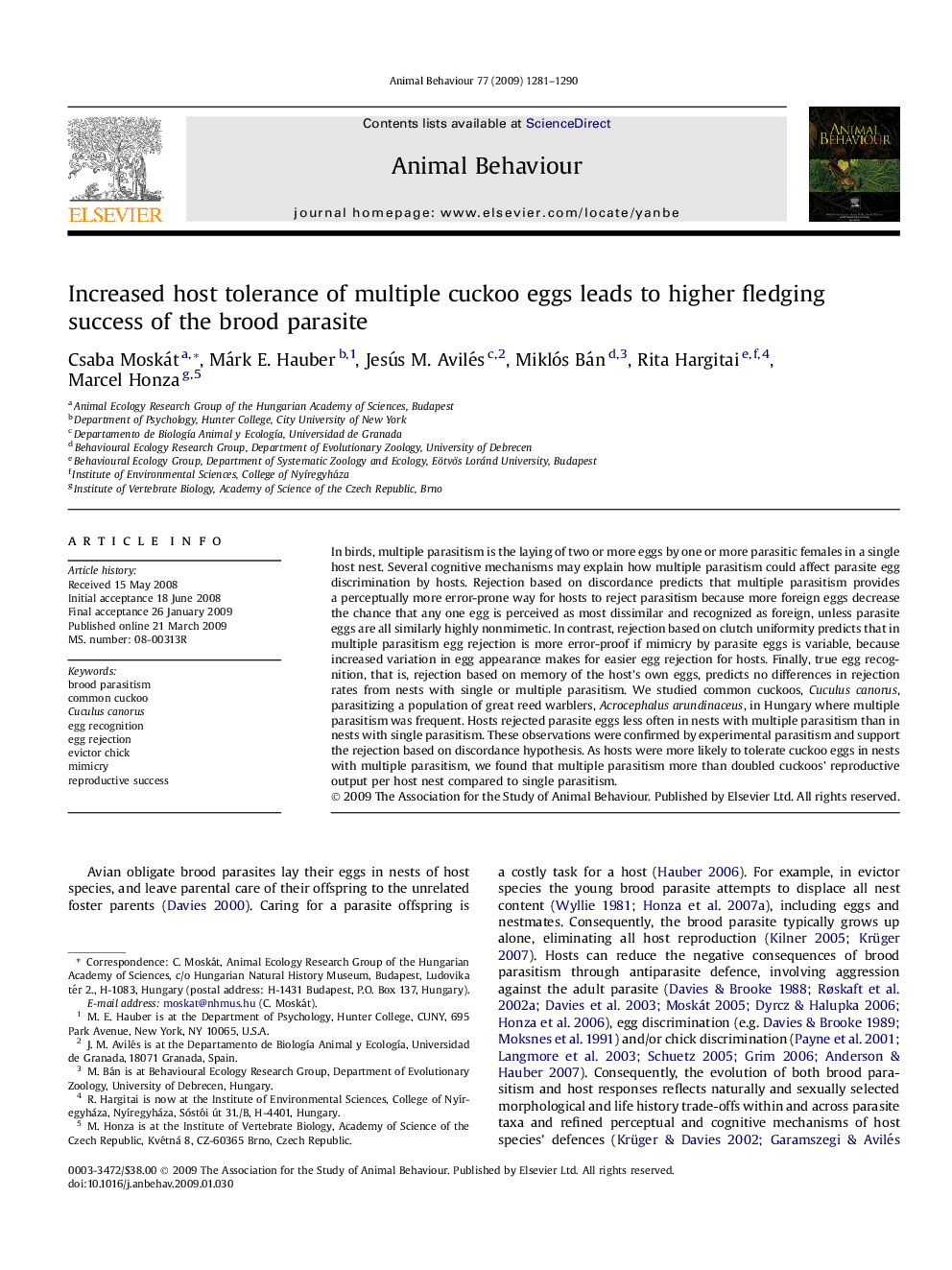| Article ID | Journal | Published Year | Pages | File Type |
|---|---|---|---|---|
| 2417646 | Animal Behaviour | 2009 | 10 Pages |
In birds, multiple parasitism is the laying of two or more eggs by one or more parasitic females in a single host nest. Several cognitive mechanisms may explain how multiple parasitism could affect parasite egg discrimination by hosts. Rejection based on discordance predicts that multiple parasitism provides a perceptually more error-prone way for hosts to reject parasitism because more foreign eggs decrease the chance that any one egg is perceived as most dissimilar and recognized as foreign, unless parasite eggs are all similarly highly nonmimetic. In contrast, rejection based on clutch uniformity predicts that in multiple parasitism egg rejection is more error-proof if mimicry by parasite eggs is variable, because increased variation in egg appearance makes for easier egg rejection for hosts. Finally, true egg recognition, that is, rejection based on memory of the host's own eggs, predicts no differences in rejection rates from nests with single or multiple parasitism. We studied common cuckoos, Cuculus canorus, parasitizing a population of great reed warblers, Acrocephalus arundinaceus, in Hungary where multiple parasitism was frequent. Hosts rejected parasite eggs less often in nests with multiple parasitism than in nests with single parasitism. These observations were confirmed by experimental parasitism and support the rejection based on discordance hypothesis. As hosts were more likely to tolerate cuckoo eggs in nests with multiple parasitism, we found that multiple parasitism more than doubled cuckoos' reproductive output per host nest compared to single parasitism.
